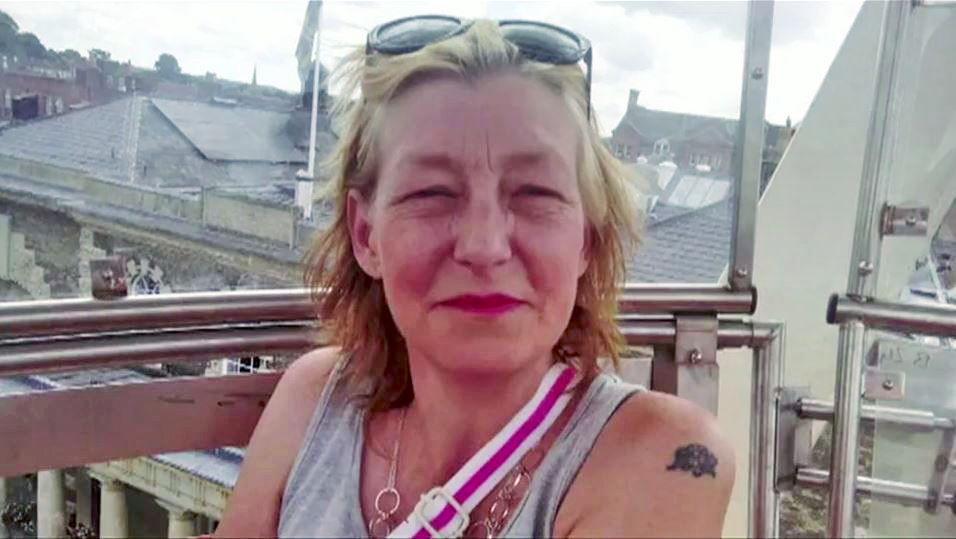'Paramedics raised Novichok alarm but were overruled'
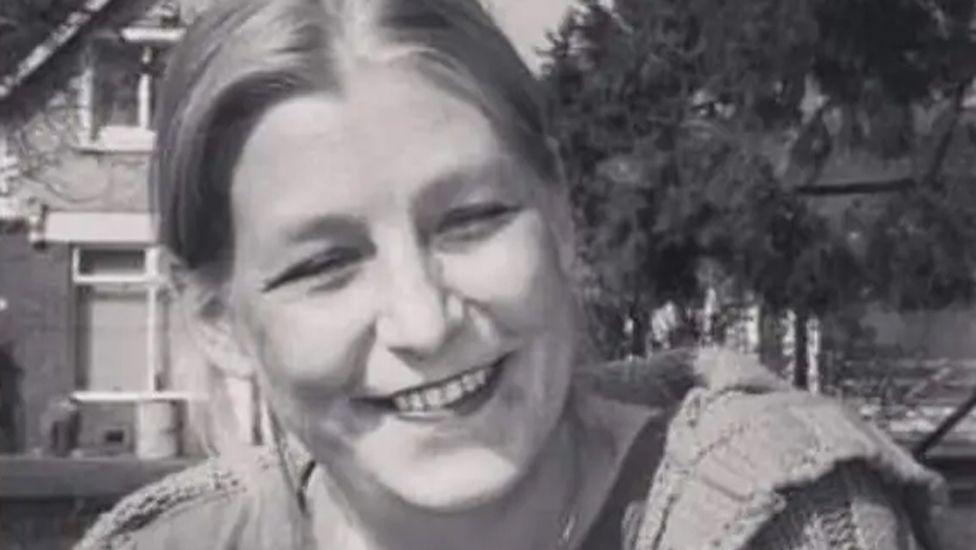
Paramedics initially misdiagnosed the mother-of-three's condition
- Published
Paramedics who attended Dawn Sturgess' partner after he fell ill feared he was suffering from nerve agent poisoning, but were overruled by police, an inquiry heard.
Ms Sturgess, 44, was inadvertently exposed to the deadly nerve agent Novichok in Amesbury in June 2018.
Paramedics told the inquiry they initially misdiagnosed the mother-of-three with opiate-poisoning due to an overlap of symptoms.
The inquiry was also told "more could have been done" to train staff on "misdiagnosis awareness".
By the time Ms Sturgess' partner Charlie Rowley become ill later that afternoon, paramedics raised concerns this could be nerve agent poisoning, but were effectively “overruled” by Wiltshire Police, the hearing was told.
A member of the critical care paramedics, Keith Coomber, told the inquiry he administered naloxone to Ms Sturgess but said he did not notice if it had any effect on her as he was busy.
He added if Ms Sturgess had not had an opiate overdose it was "not going to do anything bad but it’ll help reverse... if it was".
Wayne Darch, who was head of emergency operations at the South Western Ambulance Service in 2018, told the inquiry "more could have been done" to train staff on "misdiagnosis awareness".
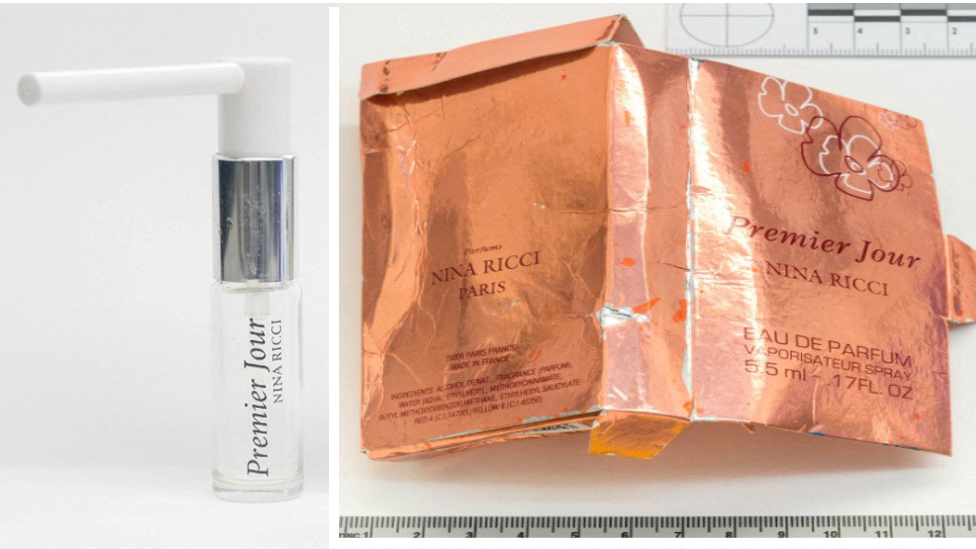
The inquiry heard the vial carrying the nerve agent contained "enough poison to kill thousands of people"
It is understood the nerve agent had been hidden inside a designer perfume bottle, which Ms Sturgess’ partner unknowingly gave to her.
Lead counsel Andrew O’Connor KC told the inquiry she suffered from heart failure because of the Novichok poison.
In the end, he adds, the brain injury Ms Sturgess sustained from a lack of oxygen during the initial period was the "immediate cause" of her death.
The overriding question posed by Mr O’Connor at the inquiry is: “Was the poisoning of Dawn Sturgess preventable?”
Mr Darch told the inquiry that poisoning from organophosphates, a toxic chemical compound, can come from several sources including pesticides, fertiliser, and flammable retardants.
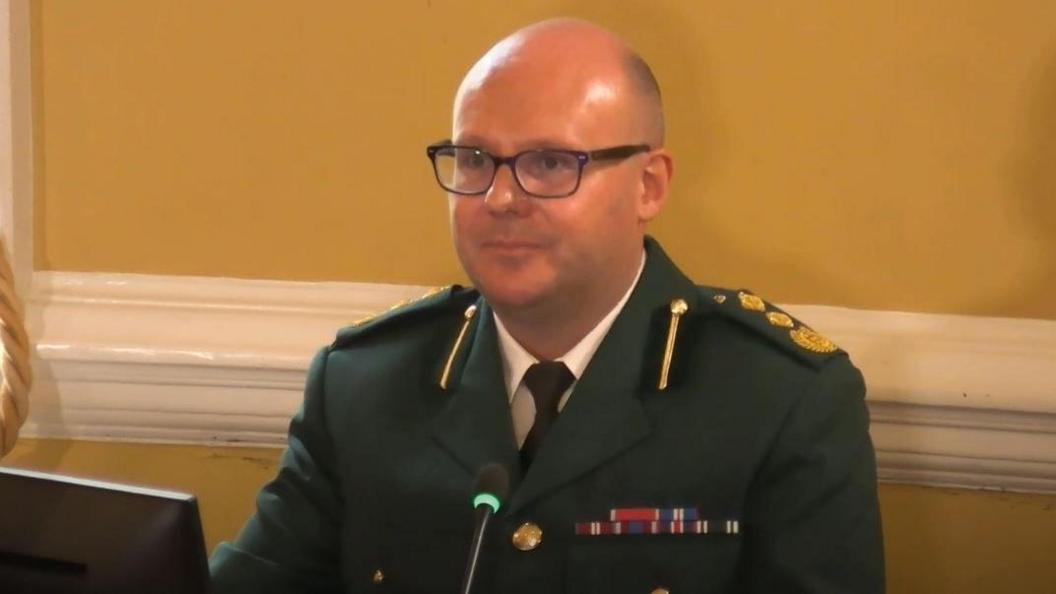
Mr Darch said his ambulance crews often attended opiate-related overdoses and had confused the overlapping symptoms with nerve agent poisoning
He added: “A number of our clinicians will go a whole career without witnessing or attending an organophosphate or nerve agent poisoning, whether accidental or deliberate.
“We responded to the symptoms that we believed were of an opiate overdose nature. It was some hours later that it became known this was not an opiate-related incident.
“My perspective is that at the time we did the best we could with what we had available to us.”
Just four months prior to her death, former Russian spy Sergei Skripal and his daughter Yulia Skripal had been poisoned with the same nerve agent, roughly eight miles away in Salisbury.
The pair had gone for lunch at a pub before they were both found collapsed "in a serious condition" on a shopping centre bench.
A report at the time stated ambulance staff had similarly misdiagnosed the pair, and the actual cause of their illness was not revealed until "15 hours later".
Fortunately, both made a full recovery and are currently living under protection.
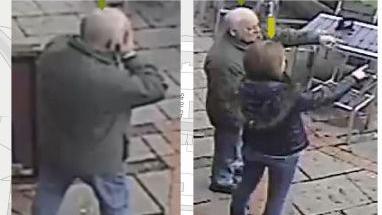
Skripal and his daughter were suffering from the effects of a toxic chemical, which had been left on the doorknob of his home
Michael Mansfield KC, representing the family of Dawn Sturgess, raised the question of what provisions had been made to protect the public following this initial attack in March.
Local emergency workers appear not to have been warned to look out for the fact that symptoms between drug overdoses and nerve agent poisonings can be easily confused - meaning it was not on their immediate radar when Ms Sturgess fell ill.
Mr Mansfield also referenced an internal document sent by the Department of Health and Social Care ten days after the Salisbury poisonings, titled 'Risk of Secondary Incident'.
It contained a list of the worst-case scenarios, one of which was deemed the ‘accidental discovery of a discarded agent’ elsewhere.
However, the letter was advised "not to be forwarded further than necessary", and Mr Darch insists he never saw it.
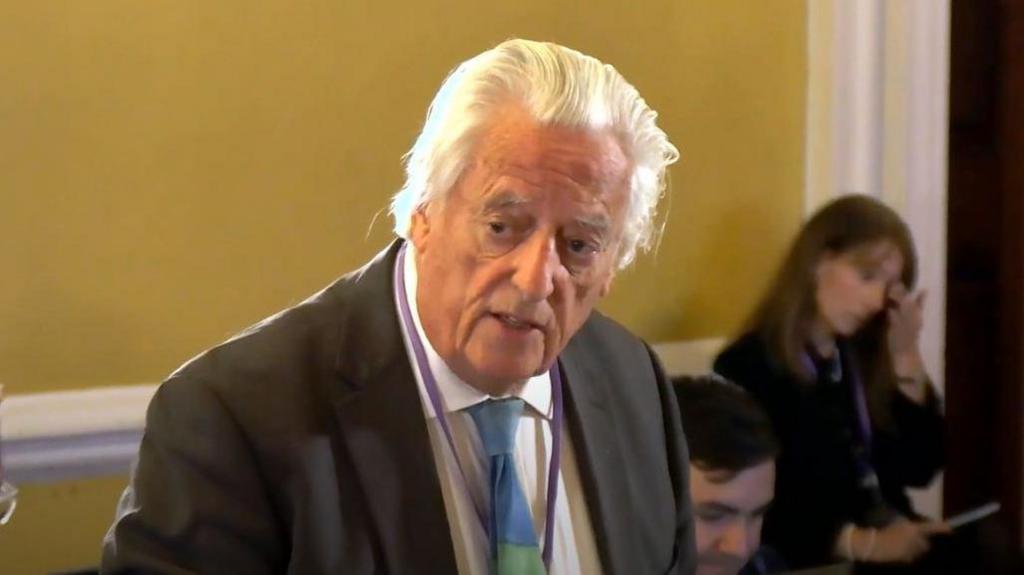
Mr Mansfield said staff and the public should have been made aware after the Salisbury poisonings that there was a potential risk of further harm
Mr Mansfield said: “One of the problems after the Salisbury attack was a mindset, that because Novichok or nerve agent poisoning was rare or virtually unknown, that it wouldn’t happen again.”
Mr Darch said he was responding on the advice of Public Health experts at the time that the "risk was extremely low".
Dep Ch Con Paul Mills, also presenting evidence at the inquiry, was the senior Wiltshire Police officer in charge of the Novichok response.
He explained: “It was my understanding at that point in time, that this was an isolated incident.
"That Mr Skripal had been targeted and there was no more information intelligence which indicated there was a wider potential threat for a further attack.
"In hindsight, I think we should have put some advice and guidance out to staff, reaffirming their training and the types of symptoms that may present in a secondary incident," he added.
At the inquiry
BBC reporter Dan O'Brien has been attending the inquiry at Salisbury Guildhall.
"The afternoon session heard from a paramedic and an emergency responder who both attended to the 999 call Charlie Rowley made when Dawn became unwell after exposure to the nerve agent in the perfume bottle.
"Her heart had stopped - they believed a cardiac arrest linked to a neurological episode. They gave her naloxone, used for drug overdose patients.
"After the Skripal nerve agent poisoning in Salisbury four months earlier, it had been flagged that one could be misdiagnosed as the other - but that had not been communicated to emergency staff.
"They did not see need to use another type of medicine - DuoDote - which all ambulance crews had carried on board since 2017, designed to treat exposure to nerve agents and chemical poisoning like fertilisers.
"No one has criticised the quality of care of these first responders themselves today, but there have been challenging questions for their leaders.
"Communicating the risk of misdiagnoses was not the only issue raised today.
"Worst-case-scenario advice issued at high levels of government warning of the risk to emergency workers and the public of potential further incidents due to the discarding of the material had not been passed on to local ambulance and police bosses."
Get in touch
Tell us which stories we should cover in Wiltshire

BBC Sounds: Salisbury Poisonings
Keep up to date with the latest from the inquiry with our podcast.
Listen to the episode on BBC Sounds.

Follow BBC Wiltshire on Facebook, external, X, external and Instagram, external. Send your story ideas to us on email or via WhatsApp on 0800 313 4630.
- Published15 October 2024
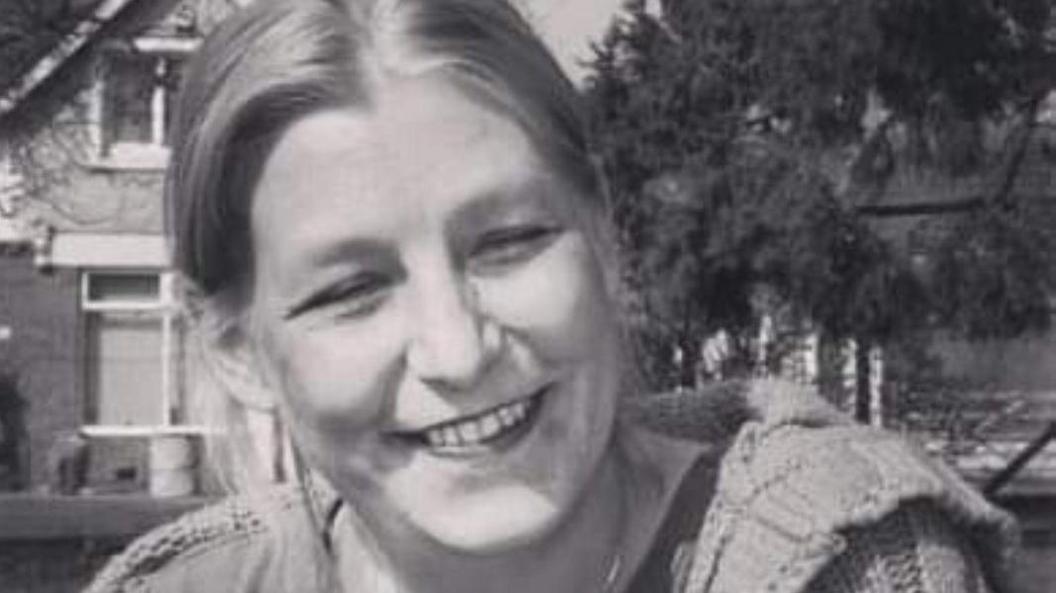
- Published29 October 2024
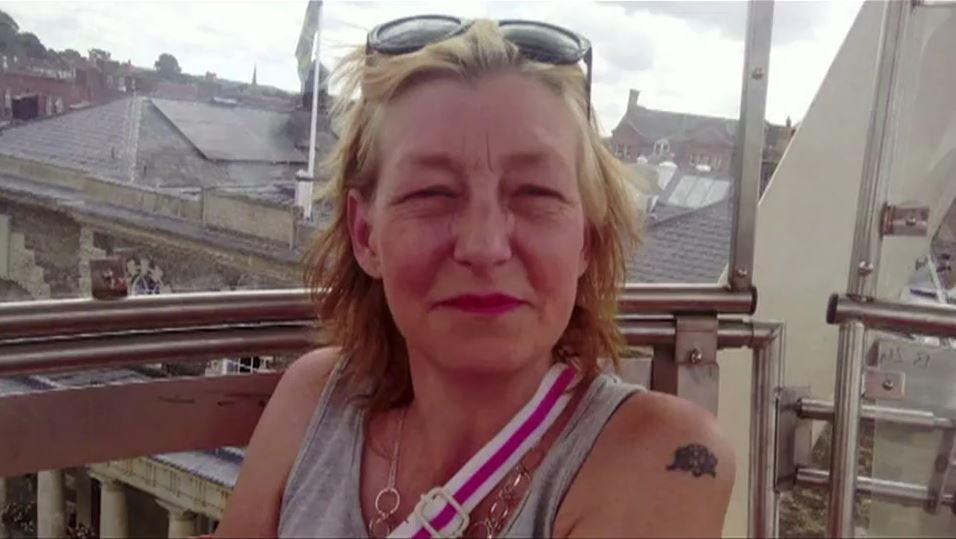
- Published14 October 2024
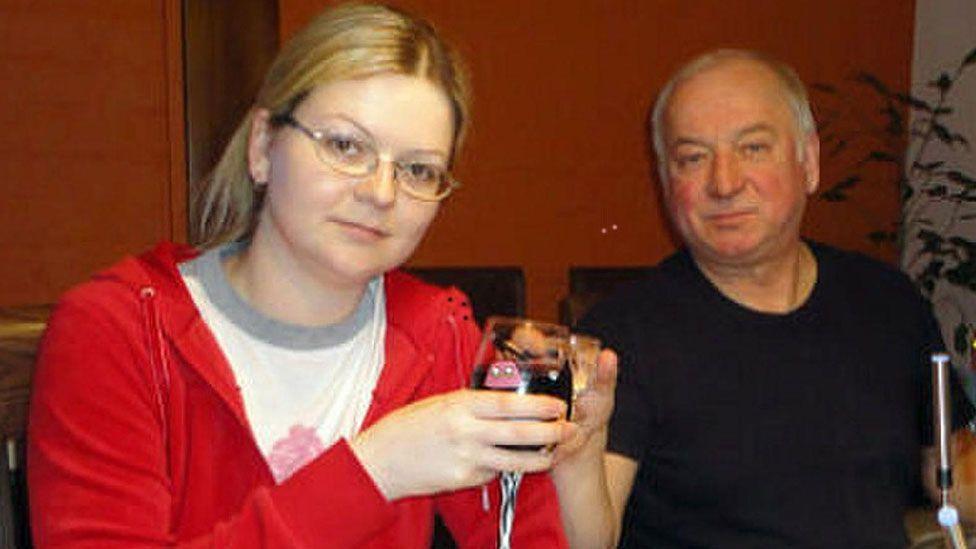
- Published14 October 2024
